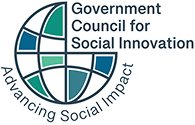Germany – Checklist of achievements
The German Government Champions for Social Innovation and Impact (GCSII) Working Group aims to consolidate efforts and expedite the expansion of the global social innovation sector, emphasizing the active involvement of the government.
National Strategy
National-Strategy-for-Social-Innovations-and-Social-Enterprises.pdf
With its National Strategy the Federal Government addresses societal challenges and shape progress with the support of social innovations and social enterprises. This work is based on seven main principles guiding 11 fields of action of the relevant federal ministries covering about 70 specific measures.
Specific Funding
- Variety of support measures & public subsidies of the Federal Ministries
- Opening up SME funding programs to which social enterprises were previously excluded (e.g. “ERP Startup Loan – StartGeld”)
- ESF-funding
- Specific support measures to strengthen social innovation in teaching and motivate students and graduates to found social start-ups (“GdINNO/ Society of Innovation”)
- New funding program to strengthen support measures and the eco system for social enterprises (“Acting Sustainably”, starts summer 2024)
- Innovation Programme for Business Models and Pioneering Solutions (IGP)
- Funding competitions to support individual socially innovative projects or regions (a.o. awarded by the German Agency for Transfer and Innovation called “DATI”)
- Mezzanine Capital (e.g. Mikromezzaninfund Germany)
- In planning: Social Impact Fund
Regulatory Framework
- Tax incentives for non-profit social enterprises
- Definition of social enterprises according to EU SME-definition 2011
- SDGs: Sustainability as guiding principle
- Greater consideration of social enterprises in public contracts
in political discussion: - Creation of a new legal form of company with tied assets
- Creation of a legal basis for the establishment of a social impact fund from dormant assets
Competence Center (national or regional)
- National platform for social innovation and social enterprises (Plattform für Soziale Innovationen & Gemeinwohlorientierte Unternehmen), Impact Summit in 2025
- EU-funded Competence Centre for Social Innovation (KoSI)
- Strategies and Alliances for Social Innovation at federal states level, e.g. Hamburg, Schleswig-Holstein, Berlin, Saxony, Hessen
Leading Ministries
- BMBF – Federal Ministry of Education and Research
- BMWK – Federal Ministry for Economic Affairs and Climate Action
Gov. Representatives in Charge
Zarah Bruhn, Commissioner for Social Innovation at Federal Ministry of Education and Research
Sven Giegold, State Secretary at Federal Ministry for Economic Affairs and Climate Action
Flagship Programmes / achievements
- National Strategy with its 70 programmes and measures
- German Agency for Transfer and Innovation DATI (innovation in regions)
- EXIST, Acting sustainably – supporting the social economy, innovation programme for business models and pioneering solutions
- Society of Ideas (GdI), Society of Innovation (GdInno, transfer from universities), Open Social Innovation (OSI)
- Foundation for Commitment and Volunteering, civic innovation plattform
Network organisations
- SEND e.V. (network of social entrepreneurs) Startseite – SEND (send-ev.de)
- Federal Association of Co-operatives Genoverband e.V. | Betreuen, Beraten, Bilden. | Genoverband e.V.
- Responsible Ownership Foundation Stiftung Verantwortungseigentum – Stiftung Verantwortungseigentum (stiftung-verantwortungseigentum.de)
- Association of public banks and church working groups Startseite – Bundesverband Öffentlicher Banken Deutschlands (voeb.de); Arbeitskreis kirchlicher Investoren (AKI-EKD) – aki-ekd.de
- Umbrella organisation of independent welfare services Freie Wohlfahrtspflege Deutschland (bagfw.de)
Ecosystem
- Science (Technical University of Dortmund, CSI Heidelberg, SEA Academy Munich, University of Hamburg and Munich, University for sustainable development in Eberswalde HNEE, Wuppertal Institute etc.)
- Incubators (UnternehmerTUM, EKIPA, ENACTUS, etc.)
- Lobby/organized social-economy sector (SEND e.V., Ashoka, about 1.700 highly innovative SE) and co-operatives
Non-governmental welfare organisations (several million full-time and voluntary workers / independent organisations / areas: health, care and social services, child and youth work as well as disaster and civil protection, crisis prevention) - Enablers/alliances (Alliance for Impact Investing, Alliance “AI for democracy”, ProjectTogether, Phineo (impact measurement and impact investing and capacity building with SKALA Campus)
- Public funding (federal levels, federal agencies like DATI or SPRIND, state and regional banks, co-operative banks)
• Private funding (foundations, philanthropists) - etc.
2023-02-01_Ecosystem_Report_Germany_full.pdf (kompetenzzentrum-soziale-innovationen.com)
Biggest societal challenges
- Climate crisis
- Demographic change (aging society, migration patterns, growing and shrinking regions, …)
- Educational system
- Shortage of skilled labour
- Social inequality and diversity
- Continuous digitalization / AI
- Political radicalization and fragmentation
- Safety and security
- Public deseases
- Migration


